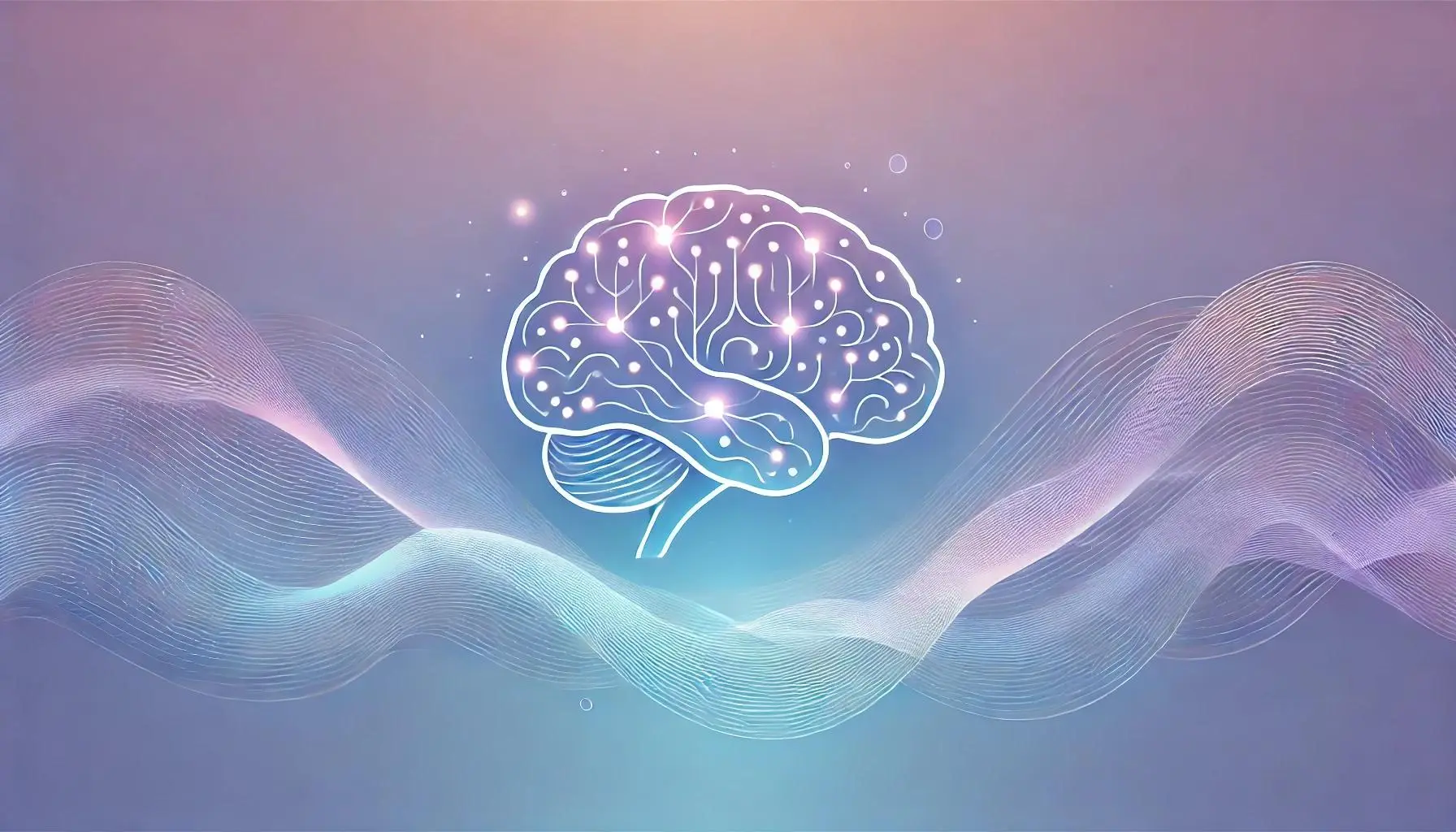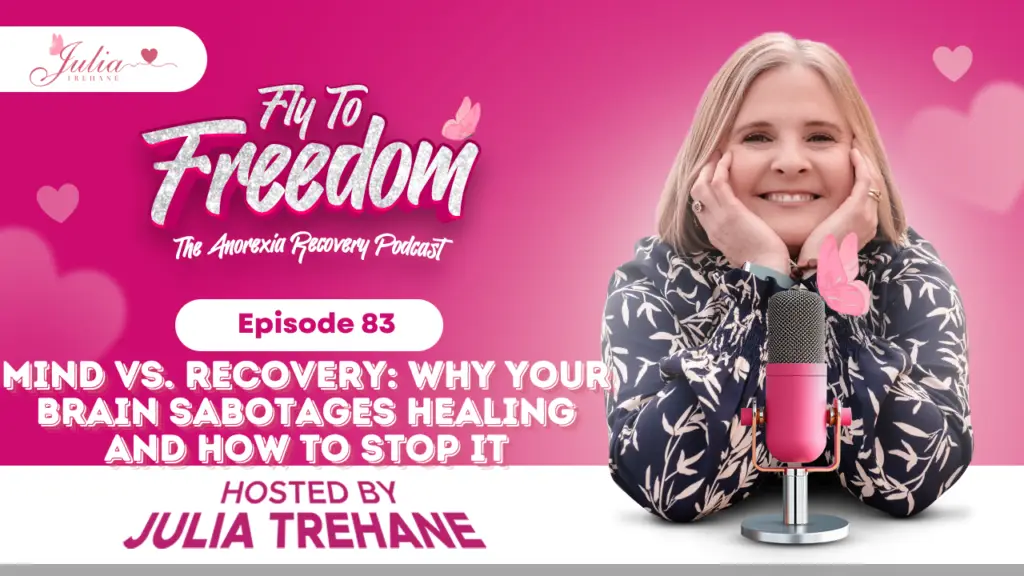Introduction
Negative thoughts can feel like insurmountable obstacles in your journey toward eating disorder recovery. They often emerge unexpectedly, casting doubt on your progress and undermining your self-worth. But why do these thoughts appear so persistently, and how can you overcome them? This blog delves into the psychological and biological roots of these negative thoughts and offers practical steps to help you rewire your brain for lasting healing.
Understanding the Brain’s Role in Recovery
As you embark on recovery from an eating disorder like anorexia, you may find yourself overwhelmed by a barrage of negative thoughts. Phrases like “I’m not sick enough to need help” or “If I eat, I’ll lose control” might echo in your mind. These thoughts aren’t random; they’re the result of how your brain has adapted to disordered eating behaviours.
At the heart of this challenge is neuroplasticity, the brain’s ability to reorganise itself by forming new neural connections throughout life. When you engage in restrictive eating or over-exercising, your brain learns to associate these behaviours with safety and control. Essentially, your brain has been wired to see disordered eating as a survival mechanism.
During recovery, when you start to change these behaviours, your brain perceives it as a threat to the established sense of safety. This triggers resistance in the form of negative thoughts, serving as defence mechanisms to maintain the status quo. However, the same neuroplasticity that wired your brain to accept disordered behaviours can be harnessed to rewire it towards health and recovery.
Why Negative Thoughts Persist
Biologically, your brain is incredibly adaptable. When deprived of adequate nutrition, it shifts into survival mode. This state triggers a heightened focus on control—particularly over food intake and body image. Your brain starts to prioritise behaviours that it believes are keeping you safe, even if they’re harmful in reality.
Negative thoughts persist because they’ve become ingrained neural pathways. Think of these pathways as well-trodden paths in a forest; the more you walk them, the clearer and more automatic they become. When you consider changing direction (i.e., adopting healthier behaviours), your brain resists because it’s used to the familiar route.
For example, the thought “I’m not sick enough to recover” persists because your brain has repeatedly reinforced this belief to maintain the disordered behaviours it associates with safety. These thoughts are your brain’s misguided attempts to protect you.
The Psychological Perspective: The Inner Critic
Psychologically, these negative thoughts can be seen as manifestations of your inner critic—a part of you that has learned to communicate through fear and self-judgement. This inner critic tells you that you’re not worthy, that you don’t deserve recovery, or that you’ll lose control if you change your eating habits.
Understanding that this inner critic is not the true you is vital. It’s a conditioned voice that has gained strength over time but can be quieted and transformed. Recognizing this allows you to separate your identity from these harmful thoughts.
How Cognitive Behavioral Therapy (CBT) Can Help
One effective method to combat these ingrained negative thoughts is Cognitive Behavioral Therapy (CBT). CBT is a form of psychotherapy that focuses on identifying and challenging distorted thought patterns, emotions, and behaviours.
Here’s how you can apply CBT principles:
- Identify the Negative Thought: Acknowledge when a negative thought arises. For example, “I don’t deserve to eat this meal.”
- Challenge the Thought: Examine the evidence for and against this belief. Ask yourself, “What proof do I have that I don’t deserve to eat? Is this a fact or just a feeling?”
- Replace with a Balanced Thought: Formulate a more balanced perspective. “Everyone deserves nourishment, including me. Eating this meal is a step toward my health and well-being.”
By consistently practising this process, you weaken the old neural pathways associated with negative thinking and strengthen new, healthier ones.
The Power of Mindfulness and Self-Compassion
Mindfulness is another powerful tool in rewiring your brain. When you are mindful, you focus on the present moment without judgement. This helps you become aware of your thoughts and feelings as they arise, allowing you to observe them without getting swept away.
Practising mindfulness can involve:
- Breathing Exercises: Take deep breaths to anchor yourself in the present moment.
- Body Scans: Pay attention to physical sensations, starting from your toes and moving up to your head.
- Sensory Awareness: Notice what you can see, hear, smell, taste, and touch right now.
By grounding yourself, you create space between you and your negative thoughts, making it easier to choose how to respond.
Self-compassion involves treating yourself with the same kindness and understanding you’d offer to a friend. When negative thoughts arise, instead of berating yourself, acknowledge the difficulty and speak to yourself kindly.
For example:
- Acknowledge Your Struggle: “This is a tough moment, and it’s okay to find it hard.”
- Offer Yourself Kindness: “May I be kind to myself and recognize that I’m doing the best I can.”
Research has shown that self-compassion can reduce self-criticism and improve mental well-being, aiding in the recovery process.
Neuroplasticity: Rewiring Your Brain for Healing
Understanding neuroplasticity empowers you to take an active role in reshaping your brain’s pathways. Each time you challenge a negative thought or practise a new, healthy behaviour, you’re creating and strengthening new neural connections.
Here are ways to harness neuroplasticity:
- Consistency is Key: Regularly engaging in positive behaviours and thought patterns reinforces new neural pathways.
- Visualisation: Imagine yourself succeeding in recovery, handling challenges with confidence. Visualisation activates similar brain regions as actual experiences, strengthening those neural networks.
- Learning New Skills: Engaging in new activities stimulates brain growth and flexibility. Consider hobbies that bring you joy and a sense of accomplishment.
- Physical Exercise: Moderate, appropriate exercise (as advised by your healthcare provider) can promote brain health and improve mood.
Practical Steps to Rewire Your Brain
- Recognize the Thought
When a negative thought arises, take a moment to notice it without judgement. Label it as a symptom of the eating disorder rather than a reflection of reality.
Example: “I notice I’m thinking that I don’t deserve to eat. This is the eating disorder speaking.” - Challenge the Thought
Ask yourself probing questions:- “What evidence supports this thought?”
- “Would I say this to a friend?”
- “Is there another way to look at this?”
- Example: “There’s no real evidence that I don’t deserve to eat. Everyone deserves nourishment, including me.”
- Replace with a Positive Affirmation
Create affirmations that resonate with you.
Example: “I deserve to nourish my body. Eating is an act of self-care.” - Practice Mindfulness Techniques
- Meditation: Even a few minutes a day can help.
- Mindful Eating: Pay full attention to the experience of eating.
- Grounding Exercises: Use sensory experiences to anchor yourself in the present.
- Cultivate Self-Compassion
- Write yourself a compassionate letter.
- Keep a self-compassion journal to record moments when you treat yourself kindly.
- Remind yourself that recovery is challenging, and it’s okay to have difficult days.
- Seek Support
- Professional Help: Therapists and counselors can provide personalized strategies.
- Support Groups: Sharing experiences with others can reduce feelings of isolation.
- Trusted Friends or Family: Lean on those who support your recovery.
- Set Realistic Goals
- Break down recovery into manageable steps.
- Celebrate small victories to build confidence.
- Engage in Activities That Promote Joy
- Hobbies, creative pursuits, or time in nature can improve mood and reinforce positive neural pathways.
Overcoming Common Negative Thoughts
- “I’m Not Sick Enough to Recover”
Reframe: “My struggles are valid, and I deserve help and healing regardless of how they compare to others.” - “I’ll Never Recover”
Reframe: “Recovery is a journey with ups and downs. Every step I take brings me closer to healing.” - “If I Let Go, I’ll Lose Control”
Reframe: “True control comes from nurturing my health and well-being, not from restrictive behaviours.”
This podcast episode make a great companion for this article. Have a listen by clicking the image
The Role of Professional Support
While self-help strategies are invaluable and you can embrace basic CBT yourself, professional guidance can significantly enhance your recovery journey. Eating disorder recovery coaches and therapists trained in eating disorders can provide personalised techniques and monitor your progress. Nutritional counselling can also help re-establish a healthy relationship with food.
Rewiring your brain from disordered thinking to recovery-focused thoughts is a challenging but achievable process. By understanding the science behind negative thoughts and leveraging the brain’s ability to change, you empower yourself to break free from harmful patterns.
Remember:
- You are not your thoughts. Negative thoughts are symptoms, not truths.
- Change is possible. Neuroplasticity means your brain can form new, healthier pathways.
- Compassion and mindfulness are powerful tools. They help create the mental space needed for healing.
Every time you challenge a negative thought, practice self-compassion, or engage in mindfulness, you’re taking a step toward recovery. Embrace these moments as victories. Recovery is not a destination but a journey of continuous growth and self-discovery.
You are stronger than the eating disorder, and you deserve a life filled with freedom, peace, and self-love.
In my Gold Standard 1:1 Coaching, I help clients uncover the root causes of their anorexia. Together, we address both the trauma and the eating disorder, creating a path toward lasting recovery. We work on rebuilding interoceptive awareness, emotional resilience, and a compassionate relationship with food and the body.
You can also sign up for my Daily Love email series, in which I sed you a daily mantra or affirmation. These mantras help ground you in your recovery journey and provide daily encouragement. You can also follow me on Instagram @juliatrehane for recovery tips and inspiration.
Next Steps
If this blog resonated with you, take the next step toward freedom—I’m here to help you. For my gold standard 1:1 coaching, reach out to me here:
I also offer lots of free resources: sign up to receive daily mantras and my free recovery guide when you join my email community. You can do this here.
Follow me on Instagram for lots of helpful tips @juliatrehane.


